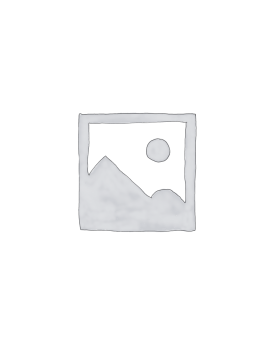Helping others becomes part of the healing process
Making life easier for families living in outback Australia has been a significant and gratifying step in the healing process for breast cancer survivor Irene Lund.
Mrs Lund, 60, and her husband Andrew, 61, are volunteers with the Frontier Services program Outback Links which provides support to people who live and work in remote parts of Australia.
“I have spent many months undergoing medical treatment, but the whole time I held onto the thought that there was somewhere special to go with Outback Links at the end of the treatment,” said Mrs Lund.
During the past three years, the Lunds have travelled from their home in Tuggeranong in Canberra to locations across outback Queensland and found themselves helping out on huge, remote properties, some bigger than the ACT.
Mr and Mrs Lund, a retired public servant and former high school maths teacher, have assisted with all kinds of tasks such as watering the garden, feeding animals, minding children, helping to plan a gymkhana, building a chook run and even mustering sheep and cattle.
“On our first placement, we were asked to help with sheep drafting, which is very noisy, very dusty and great fun,” said Mrs Lund.
“We would be standing in the yard with 750 sheep around us, trying to separate the lambs from the ewes. You have to jump up and down and make lots of noise to get the sheep to go through the gate!”
“We have been eased into different jobs that originally we would never have put our hands up for. Now, we feel so much more confident.”
The Lunds have helped families with a variety of different needs.
On their first placement in 2008, the Lunds were asked to housesit for someone needing to travel to hospital for surgery. For the 75-year property owner, this meant a two day’s drive to the nearest major town and two weeks recovery before driving all the way back.
They have assisted with the care of children with disabilities on different occasions including a three-year-old girl with Rett Syndrome who is unable to walk or talk but is learning to communicate on a computer. Her mother was on crutches following a motorbike accident while mustering.
Mostly, they have provided extra hands to help out with the immense workload of running a station, maintaining a household and schooling children all at the same time.
“We hope that we help the people we meet in some way. Sometimes it is obvious that we have made a difference, at least for the short term. Always, we seem to be the ones who have gained the most,” said Mrs Lund.
It was while she was on an Outback Links placement that Mrs Lund first noticed a lump, but she waited until she was home before she had the first of many visits to doctors and hospitals.
On this particular volunteer placement, Mr Lund had stayed in Canberra.
“At first, I didn’t tell Andrew (about the lump). I had a couple of sleepless nights, then I just said to God, ‘let me put this out of my mind’, because there was nothing I could do. I couldn’t walk out on this family. They couldn’t get another carer just like that.”
Over the next 12 months, while undergoing chemotherapy and radiotherapy, Mrs Lund said one of the things she held on to was the thought of her next opportunity to volunteer with Outback Links.
“That thought was like a distant light at the end of the tunnel, and as the timing of treatments became clearer, we dared to hope that it would be possible.”
In June this year, Mrs Lund was able to complete another volunteer placement with a family she had already visited. Her main job was to help the 11-year-old daughter with her schoolwork, in between mustering sessions as the young girl was a necessary part of the mustering team. The Lunds also helped with the mustering, as well as cooking, cleaning, feeding the animals and sanding back a horse float.
“It was a great time and very much a part of my healing process,” said Mrs Lund.
“When you’ve got cancer, you’re having operations and chemotherapy, which is just appalling, and you think ‘Am I ever going to be able to do anything again. Have I given up everything?’”
“Being able to volunteer again was very much a part of my healing process – it was getting back to it and knowing I could do it. I don’t know if it’s going to reoccur but I can still get back to normal life. Helping other people again meant it was not just everybody helping me.”
Mr Lund is just as enthusiastic about his experience with Outback Links.
“It is humbling to see how these people manage everyday without many of the amenities we take for granted,” Mr Lund said.
“We have been able to see a lot more of the country and in more depth.”
“When you are just travelling through a place, you don’t get to experience the communities and the people. ‘Links’ is the right word because it brings both sides together.”
Mr and Mrs Lund are also members of the NSW Frontier Services Support Group which meets regularly to provide prayerful and practical support for the organisation.
Go to the Outback Links website for more information or phone 1300 731 349.


